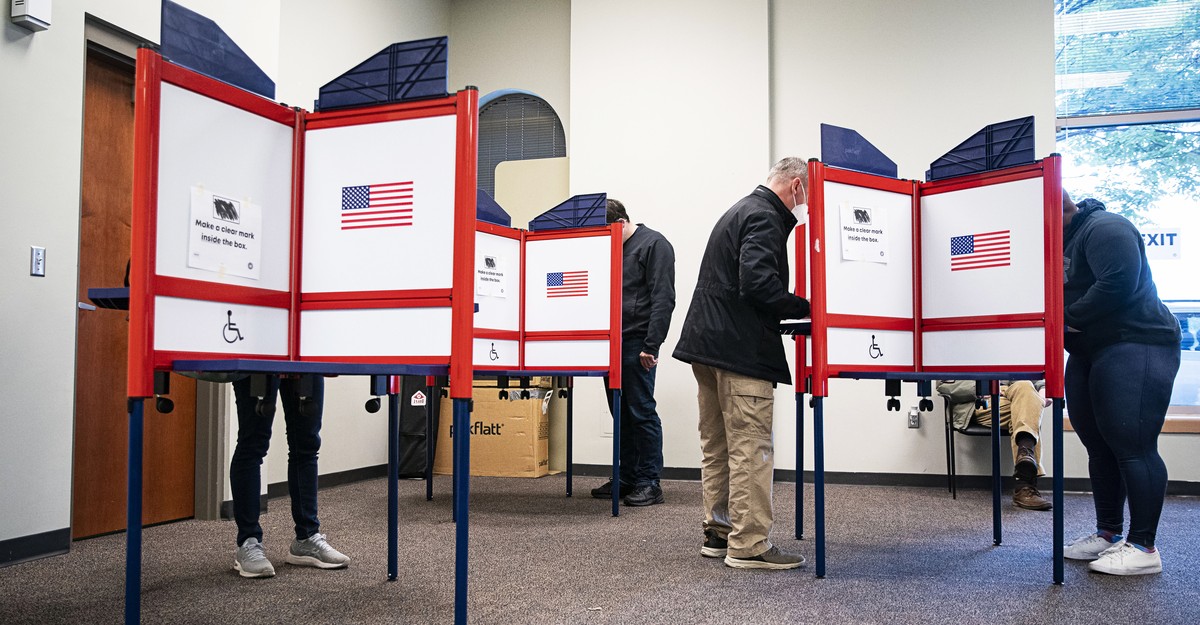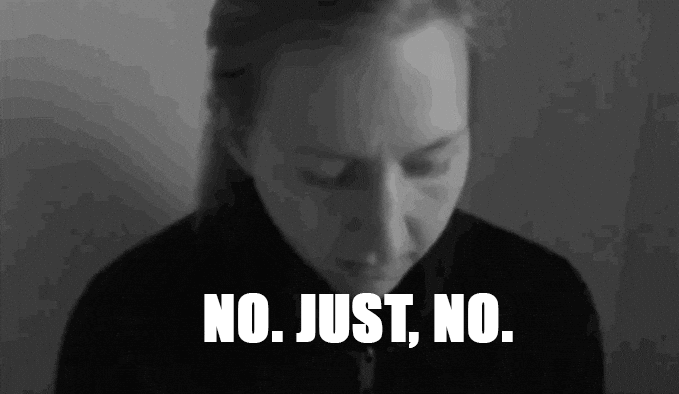
You Can’t Win Elections by Telling Voters Their Concerns Are Imaginary
Virginia is sending Democrats a warning: They’ve lost control of the narrative about education.
Glenn Youngkin’s victory over Terry McAuliffe for the governorship of Virginia should make Democrats—and anyone else who fears that a Republican Party still beholden to Donald Trump poses a serious threat to American democracy—very worried about what is to come.
Republicans are now favored to recapture Congress in 2022. Betting markets indicate that Trump is the most likely victor of the 2024 presidential election. Difficult though it is to draw lessons from any one election, the task is crucial if Democrats are to change the political trajectory on which the country finds itself.
That makes it all the more worrying that one line of interpretation seems to dominate the Democratic ecosystem. If cable-news analysts and newspaper columnists are to be believed, Youngkin, an extremist posing in the garb of a suburban dad, was able to incite “white backlash” by exploiting “fake” and “imaginary” fears about the teaching of “critical race theory” in public schools.
But this account does not help explain the inroads Youngkin seems to have made in blue suburbs, among political independents, and even among Black voters. Nor does it help Democrats develop a plan for how they can avoid further political losses when Republicans across the country emulate Youngkin’s strategy next year.
The truth, I fear, is rather different. Youngkin capitalized on a widespread public perception that Democrats are out of tune with the country on cultural issues. In doing so, he demonstrated that Republicans who attack identity politics without embracing Trump’s extremist rhetoric can be highly competitive in purple and even solidly blue states (such as New Jersey, where another gubernatorial election that was meant to be an easy win for Democrats has turned out to be unexpectedly close).
Read: If Democrats can lose in Virginia, they can lose almost anywhere
If Democrats want to avoid losing control of Congress next year and the White House in 2024, they need to take an unflinching look at what just happened.
For most of 2021, Youngkin struggled to generate any enthusiasm for his campaign. His strategy of keeping Trump at arm’s length without explicitly criticizing him seemed to have succeeded in holding the Republican coalition together, but not in appealing to the swing voters he would need to come within striking distance of the governor’s mansion. The race looked predictable, and McAuliffe was likely to win by a safe margin.
Then Youngkin started to home in on a new theme: education. Responding to widespread anger among parents across the commonwealth, he lambasted public schools for failing to reopen for in-person classes for most of the pandemic. Then, capitalizing on growing unease about curricular content—which parents who were home with their kids could eavesdrop on via Zoom—he warned that teachers were trying to indoctrinate students with radical political ideas, collectively referring to them as “critical race theory.”
The pivot worked. Voters usually consider education to be one of many important issues and tend to trust Democrats to handle it better than Republicans. This was the case in Virginia as late as September, when voters who prioritized education favored McAuliffe by 33 points. But, especially after McAuliffe said, “I don’t think parents should be telling schools what they should teach,” the wind turned. A week before the election, a Washington Post poll found that a plurality of voters in Virginia ranked education as the election’s most important topic. Among those who did, Youngkin was now up by nine points.
Other polls taken in the run-up to the election provide further evidence that Youngkin owes his victory to his focus on education. According to one poll taken in the week before the election, for example, Youngkin led McAuliffe by three percentage points among all likely voters. But among K–12 parents, the Republican led the Democrat by 15 points.
Why was Youngkin so successful in turning education into the signature issue of his campaign and winning plenty of swing voters over to his side?
If you listen to Democratic politicians or read the mainstream news, the answer to that question seems to be that most voters were duped. The New York Times, for example, largely missed the degree to which the debate over education was fueling Youngkin’s rise. And when the newspaper of record did finally send a reporter to write an extended piece about how Youngkin had become a “culture warrior,” it implied—as a matter of fact, not opinion—that parental concerns over curricular content were based in confusion.
Zachary D. Carter: The Democratic unraveling began with schools
Critical race theory, the article stated, is “an academic body of thought about the effects of systemic racism that has galvanized conservatives around the country. It is generally not introduced until college and is not part of classroom teaching in Virginia.” In other words, the main topic around which Youngkin built his campaign does not exist.
That has also been a widely held view within the Democratic echo chamber over the past 24 hours. According to one viral tweet, “It is incredible the GOP successfully made Virginia governor’s race about teaching critical race theory in public schools, something that is not taught in any public school anywhere in America.” Or as another quipped, “White and suburban kids in Virginia are now saved from CRT and Sharia and Bigfoot and Unicorns.”
In this analysis, the opposition to critical race theory is nothing more than a racist dog whistle. Supposed concerns about it aren’t just lies; they are an exercise in “race-baiting.” The real goal of Republicans like Youngkin is, simply, to prevent any discussion of the history of slavery or even to perpetuate “white supremacy.”
The idea that critical race theory is an academic concept that is taught only at colleges or law schools might be technically accurate, but the reality on the ground is a good deal more complicated. Few middle or high schoolers are poring over academic articles written by Richard Delgado or Kimberlé Crenshaw. But across the nation, many teachers have, over the past years, begun to adopt a pedagogical program that owes its inspiration to ideas that are very fashionable on the academic left, and that go well beyond telling students about America’s copious historical sins.
[continued below]



